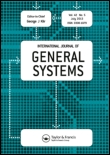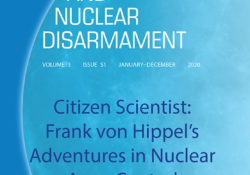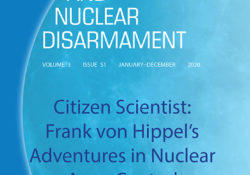tandfonline.com har udgivet en rapport under søgningen “Teacher Education Mathematics”: ABSTRACT ABSTRACT In this part, von Hippel discusses how his focus shifted in the first decade of the 21st century to a set of new concerns evoked by the terrorist attacks of 11 September 2001 and the G.W. Bush administration’s retrograde policies with regard to nuclear arms control and nonproliferation. During this period, he co-founded the International Panel on Fissile Materials so that policy activists working in opposition to nuclear arms races and fissile material production in different countries could work together. He also focused on fostering another generation of activist scientists engaged with the nuclear arms control and nonproliferation agenda. Link til kilde
Like this:
Like Loading...
tandfonline.com har udgivet en rapport under søgningen “Teacher Education Mathematics”: ABSTRACT ABSTRACT von Hippel describes a transparency tour during the summer of 1989 to the Soviet Union’s first plutonium-production complex in the Urals and to the Soviet test site for anti-satellite lasers in Kazakhstan. In December 1991, immediately after Ukraine declared independence, he participated in a mission to persuade it to return its nuclear weapons to Russia. He describes the thus far unsuccessful effort to dispose of the weapons plutonium that the US and Soviet Union declared excess at the end of the Cold War. The discussion then turns to the US-Russian lab-to-lab program in which the US nuclear-weapon laboratories helped Russia upgrade the security of its plutonium and highly-enriched uranium for the new and more open environment and to… Continue Reading →
Like this:
Like Loading...
tandfonline.com har udgivet en rapport under søgningen “Teacher Education Mathematics”: ABSTRACT ABSTRACT In this article, I analyze the use of historical counterfactuals in the Campaign of 1815 by Carl von Clausewitz (1780–1831). Such is the importance of counterfactuals in this work that its gist can be given in a series of 25 counterfactuals. I claim that a central role is played by evaluative counterfactuals. This specific form of counterfactuals is part of a didactic method that allows Clausewitz to teach young officers a critical method that prepares them for the challenge of decision-making in real warfare. I conclude with the enduring relevance of Clausewitz’s use of evaluative counterfactuals for contemporary military historiography. Link til kilde
Like this:
Like Loading...

tandfonline.com har udgivet en rapport under søgningen “Teacher Education Mathematics”: Abstract Bertalanffy’s so-called “general system theory” (GST) and cybernetics were and are often confused: this calls for clarification. In this article, Bertalanffy’s conceptions and ideas are compared with those developed in cybernetics in order to investigate the differences and convergences. Bertalanffy was concerned with first order cybernetics. Nonetheless, his perspectivist epistemology is also relevant with regard to developments in second order cybernetics, and the latter is therefore also considered to some extent. W. Ross Ashby’s important role as mediator between GST and cybernetics is analysed. The respective basic epistemological approaches, scientific approaches and inherent world views are discussed. We underline the complementarity of cybernetic and “organismic” trends in systems research within the unitary hermeneutical framework of “general systemology”. Link til… Continue Reading →
Like this:
Like Loading...



